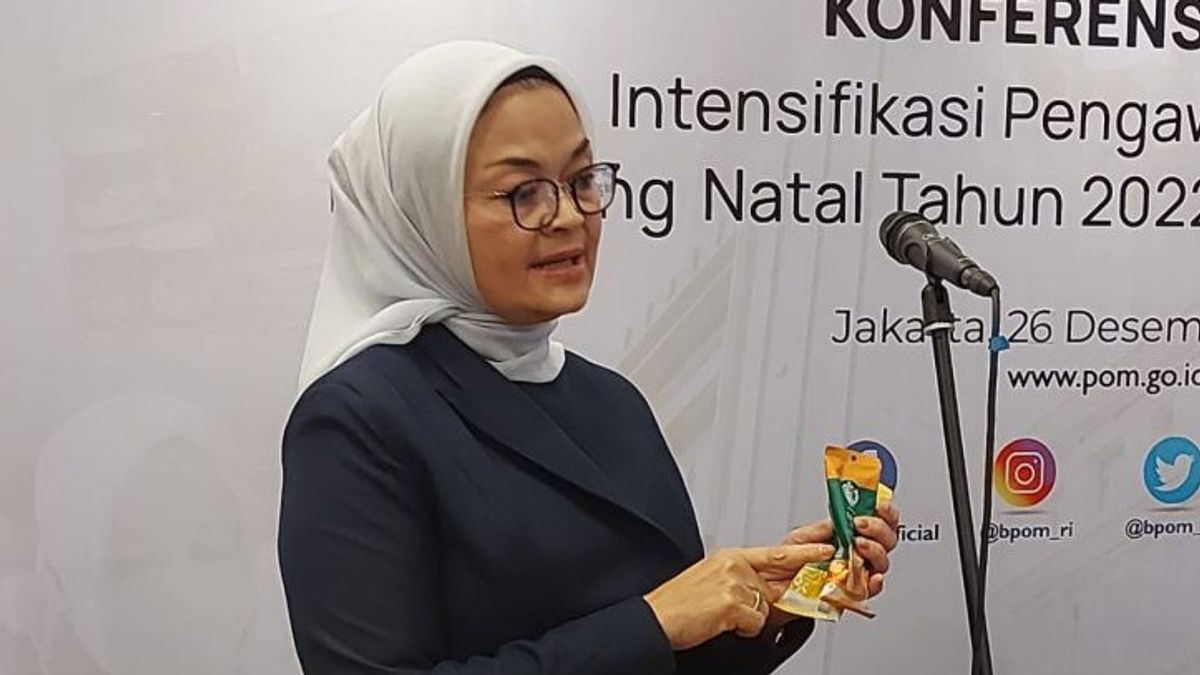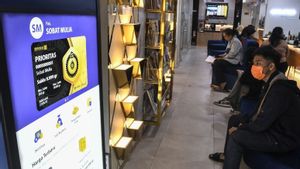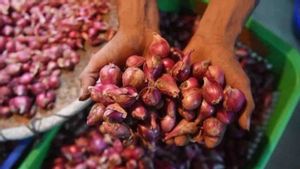JAKARTA - The Food and Drug Administration (BPOM) confiscated Starbucks trading bag packaging coffee products. The product was confiscated because it did not have an official distribution permit from the Government of Indonesia.
"This product was confiscated from one of the shops, because it was without a written distribution permit from the Government of Indonesia (BPOM)," said Head of BPOM Penny K Lukito in a press conference 'The results of the 2022 Christmas and 2023 New Year Food Supervision Intensifications', at BPOM Building, Central Jakarta, Monday 26 December.
BPOM displays six bags of Starbucks branded coffee evidence, a variant of the nutble toffe,
The Nestle-Starbucks product was imported from Maslak-Istanbul, Turkey, with an expiration date until October 24, 2023.
"This product does not have a distribution permit, this is imported goods. After this we have to contact the importer. Later they contact the distributor Starbucks in Turkey," he said, quoted by Antara.
Penny said that all imported food products circulating in Indonesia must have a BPOM distribution permit so that when an incident occurs such as poisoning or endangering the health of consumers, control can be immediately carried out.
"There should be a BPOM distribution permit, so if there is anything, remember the recent incident, our country is like a sirop drug," he added.
Penny said imported products needed distribution supervision from the start through registration from BPOM.
"So, if there are indications of dangerous content, we can immediately trace it and withdraw its products from circulation, such as the occurrence of sirop drugs, we can immediately identify the distribution point of the product and immediately withdraw it so that it is quickly controlled," he said.
The bag packaging coffee is part of a total of 66,113 product items that are deemed not to meet the provisions of circulation in Indonesia traced by BPOM until December 21, 2022. The details are 36,978 expired food items (55.93 percent), 23,752 food items without distribution permits (35.93 percent), and 5,383 food items damaged (8.14 percent).
BPOM has conducted inspections on 2,412 processed food distribution facilities consisting of 1,929 retail facilities, 437 distributor warehouses, including 16 e-commerce warehouses and 46 importer warehouses.
Most (86.17 percent) of these products were found in retail facilities and a small part was found in distributor warehouses and importers of the Technical Implementation Unit (UPT) working area with the most food findings without distribution permits, namely in Tarakan, Rejang Lebong, Tangerang, Banjarmasin, and Jakarta.
The English, Chinese, Japanese, Arabic, and French versions are automatically generated by the AI. So there may still be inaccuracies in translating, please always see Indonesian as our main language. (system supported by DigitalSiber.id)









